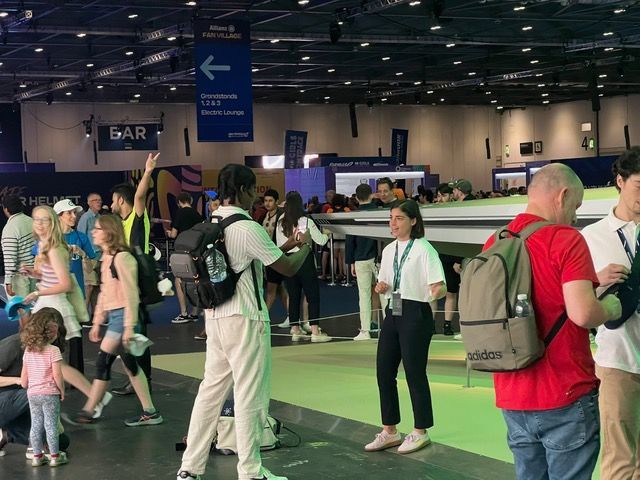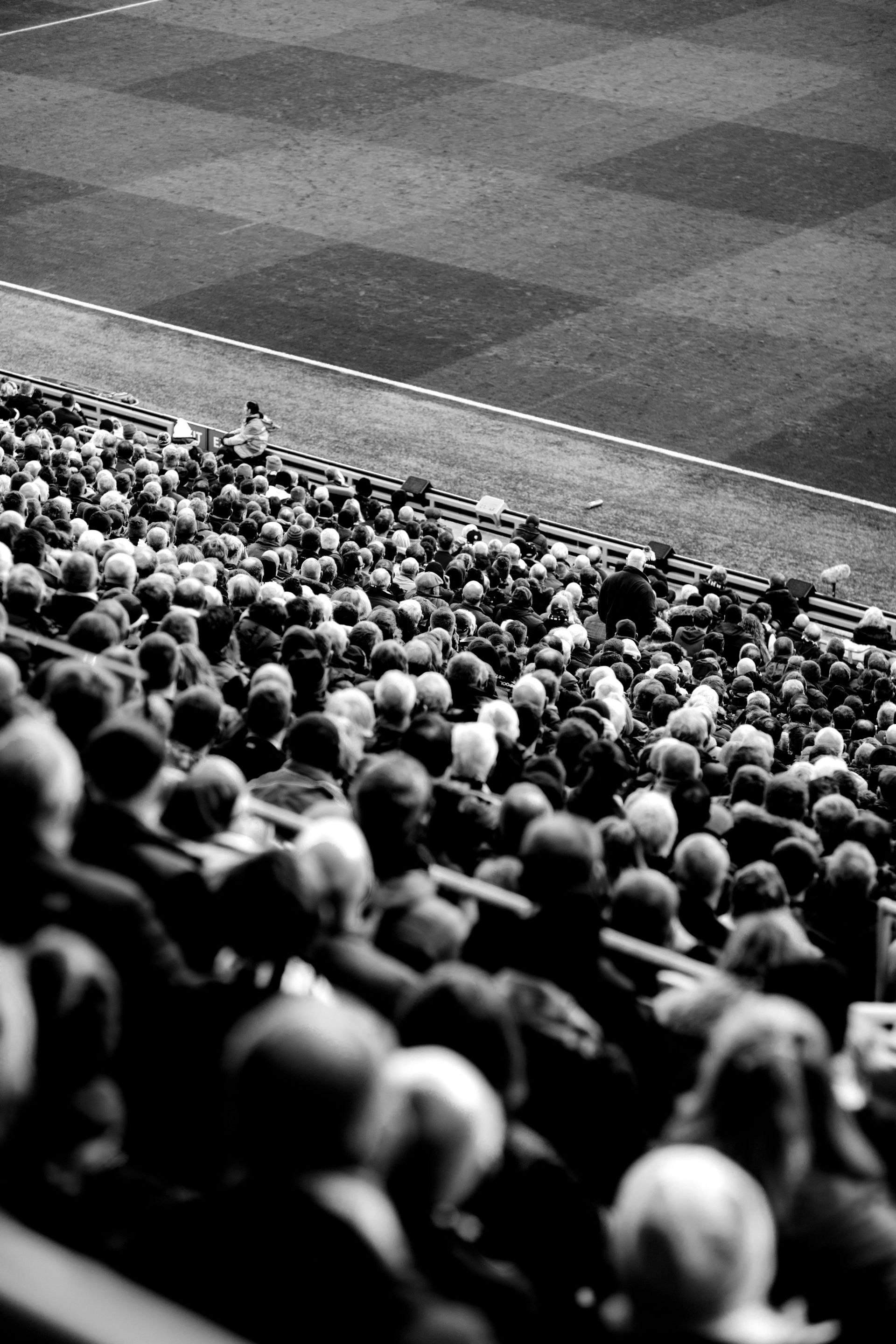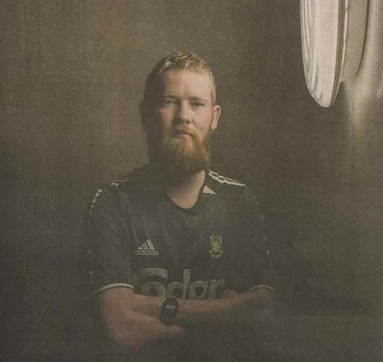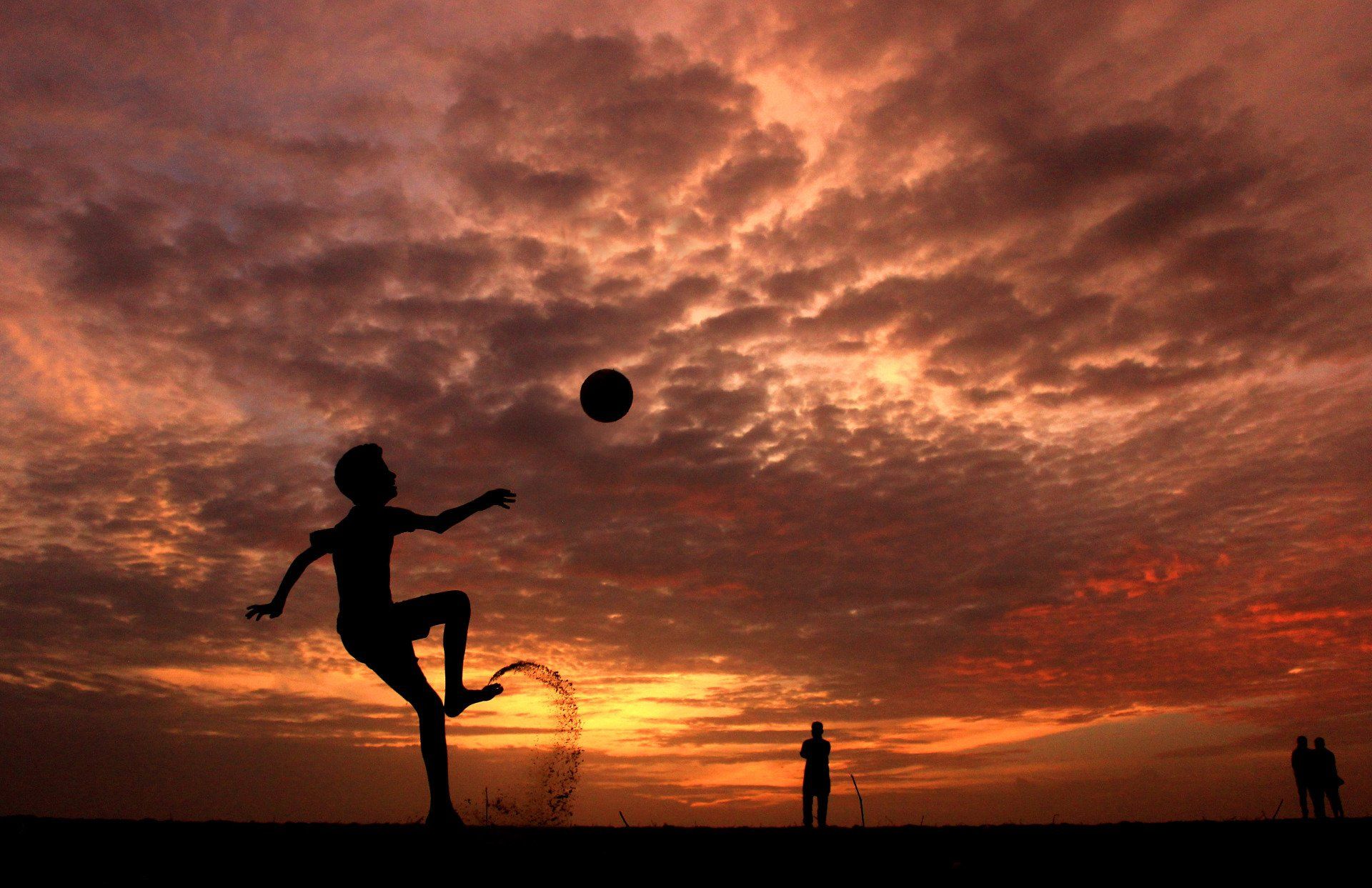RECLAIM THE GAME
A Fan Movement To Reshape Football's Future

FOOTBALL FANS ACROSS THE WORLD NEED TO UNITE AGAINST FIFA AWARDING THE 2034 WORLD CUP TO SAUDI ARABIA
The voting will take place on 11 December 2024, during the FIFA Congress in Zürich, and will be open to all 210 eligible members.
As football fans, we call on FIFA to halt the process to pick Saudi Arabia as hosts of the 2034 World Cup before the vote next month. Amnesty International, the Sport & Rights Alliance (SRA) and other human rights groups are also calling for the same.
"There will be a real and predictable human cost to awarding the 2034 World Cup to Saudi Arabia without obtaining credible guarantees of reform," Steve Cockburn, Amnesty's head of labour rights and sport, said in a statement.
"Fans will face discrimination... migrant workers will face exploitation, and many will die.
"FIFA must halt the process until proper human rights protections are in place to avoid worsening an already dire situation, he added.
As football fans, we are in full agreement with this statement.
Besides it

As football continues to evolve into a global business empire, the Danish Football Association (DBU) finds itself facing an identity crisis. With Saudi Arabia on the verge of hosting the FIFA World Cup in 2034 - despite glaring violations of human rights - the DBU is presented with a unique opportunity to stand up for the values of democracy, transparency, and human dignity. Sadly, instead of leading the charge for integrity, DBU appears content to remain silent, complicit in the erosion of football's moral foundation.

Formula E is an electric powered single-seater motorsport World Championship, launched ten years ago with an explicit remit to promote and develop battery powered electric vehicles, reduce carbon emissions, champion renewable energies, and have a positive social impact and legacy in the areas it races in. It has been recognised and crowned as the must sustainable motorsport championship in the world for the last three years running. But for all the genuine good that it has done since it came into being, in recent years there’s a very uncomfortable elephant in the room that nobody in the sport seems to want to talk about seriously. If you were watching coverage of the season-ending London E-Prix on the 20th and 21st of July, you’ll have noticed three prominent logos plastered all along the trackside advertising: Saudia airlines, (Fully owned by the Saudi government) SABIC, (Saudi Arabia Basic Industries Corporation, a chemical manufacturer 70% owned by Aramco) and largest of all, PIF: The sovereign wealth fund of Saudi Arabia, which Human Rights Watch list as being “directly involved” in human rights abuses. This fits in very neatly with Saudi Arabia’s programme of investment in major sports to distract from it’s distasteful record - a whitewashing practice known as sportswashing. But Formula E is unique from it’s other sporting acquisitions, because it has additionally proven itself to be a fantastically useful greenwashing tool for a regime ultimately responsible for 4.38% of the planet’s historic carbon emissions since 1965. The teams have also readily accepted the influence of Saudi money for some years now. NEOM - a megacity project wholly owned by the PIF, who have committed numerous environmental and human rights violations in it’s construction, including the eviction and murder of the native 800 year old Howeitat tribe - are the title sponsors of the famous McLaren team; a partnership which began in the team’s previous guise as the factory Mercedes-Benz team in 2020. The black and gold DS Penske outfit also has prominent backing from the Saudi Research and Media Group (SRMG) - A Saudi state-backed media company with close ties to the government, which is considered a direct outlet for Saudi soft-power in the UK. (There is of course no independent media in the Kingdom, largely because there is no freedom of speech) In addition to this, Season 8 world driver’s champion Stoffel Vandoorne, who currently drives for Maserati, is a brand ambassador for Saudia Airlines. In many ways it’s not a surprise: Formula E was one of the first racing series to visit the Gulf Kingdom back in 2018 after signing a 10-year multi-billion dollar deal to host a race in the Saudi capital of Riyadh; a deal which gave Saudi Arabia regional exclusivity to host Formula E in the Middle East, which is unprecedented and unheard of on a usually volatile calendar. The current omnipresence of PIF in the series is due to their new 10 year “Electric 360” investment partnership with the championship announced in January of this year, one which also extends to Extreme E - the electric SUV off-road racing series, and E1 - The Electric Powerboat racing championship. One of the main architects behind this deal is Formula E, Extreme E and E1 founder, former FE CEO and current chairman Alejandro Agag, a Spanish businessman and former politician and a close personal acquaintance of Mohammad Bin Salman: The crown prince of Saudi Arabia markets himself to the West as a reformer, but is infact a brutal, authoritarian dictator. “For me, to partner with PIF is really important because of the alignment we have with the values that we share,” Said Agag in an interview on PIF’s YouTube channel to promote the announcement. He goes on to list: “Innovation, technology, pioneering, daring.” In reality there is only one shared value of any substance, and it’s the one that Agag doesn’t mention: Money. Formula E is an expensive, historically loss-making series , and PIF has an estimated total asset value of $726.3 Billion that’s it’s willing to invest. This almost bottomless pit of investment carries with it a very high cost though; one that carries with it an incredible risk to Formula E itself. The Diriyah E-Prix on the 27th of February 2021 is remembered for a race-ending crash for British driver Alex Lynn, in which his Mahindra car was flipped upside down at high speed after contact with Mitch Evans’ Jaguar, causing the race to be red flagged and ended prematurely. Lynn walked away unscathed, but shortly afterwards there was an even luckier escape for the entire paddock. During the podium ceremony, as Sam Bird celebrated victory amidst a flashy fireworks display, a ballistic missile was intercepted by the Saudi Patriot missile battery in the skies above, with the explosion heard by those below. This had been launched by Houthi rebels in Yemen, with the target being the crown prince himself, who was in attendance. Teams, media and staff within Formula E discovered flights out of the country were diverted or cancelled and were sent back to their hotels for the night. In a truly disturbing move, they were put under a gagging order to deny that the attack had even happened in the first place, unconvincingly dismissing it as simply part of the fireworks show despite all evidence to the contrary. It was the first time that such an attack was targeted at a motorsport event in the kingdom, but it certainly wasn’t the last: On December 30th 2021 during the Dakar Rally, French rally driver Philippe Boutron suffered serious leg injuries in Jeddah when a support vehicle he was driving exploded after a bomb was placed under the side of the car - an attack which the Saudi authorities attempted to cover up. Even more infamously, Formula 1’s visit to the Saudi Arabian Grand Prix in Jeddah the following year saw a nearby Aramco oil refinery hit by a Houthi drone strike during Friday free-practice, leading to a very lengthy driver meeting in which the field had to be talked into forgoing their safety in order to satisfy commercial interests and take part in the race. Whilst terror attacks can take place anywhere in the world, the dangers of racing in Saudi Arabia were known about beforehand; the Saudi led coalition has been waging war with Yemen since 2015, where the coalition has bombed civilian targets including hospitals and school buses , in what was at the time the worst humanitarian crisis on the planet. From November 2017 the Houthis launched multiple missile strikes on the capital, with the worst incident being a seven missile strike on King Khalid International Airport and other areas in Riyadh, Jazran and Najran on the 26th of March, 2018. The MIM-104 Patriot system malfunctioned, leading one Saudi missile to explode in a residential area, and another to detonate shortly after launch. When a fragment from one of the missiles fell over a residential neighbourhood, an Egyptian man was killed, with two others wounded. Two months later, Alejandro Agag announced the ten-year deal for Formula E to race in Riyadh. When I attempted to warn people working within Formula E about this, I was told to be more positive; they had gone to the country, felt that it was perfectly safe, and assured me that politics, murders and wars were not at all FE related and that I was overreacting. In effect, every time Formula E visits the kingdom, it’s playing a game of Russian Roulette with the lives of teams, staff and fans, many whom either reluctantly accept the danger as part of the job or simply ignore it altogether. The Patriot Missile interception malfunctioned once when overwhelmed; in a sport which takes so many steps to ensure the safety of drivers, marshals, and spectators alike, it seems utterly reckless of both Formula E Holdings and the sport’s governing body, the FIA, to gamble everyone’s lives on unreliable technology and a fragile truce for two days every year. But when enough money is involved, people will look the other way and pretend that everything is fine. In the fan village at the London E-Prix in the ExCel, one of the biggest stands is PIF’s: fitted out in the dark green colours of the Saudi flag, it’s devoted to the Electric 360 partnership, and displays the cars from the three different championships that they sponsor. Most people are there to play Ping - a 2D top down mobile game in which players each control a PIF sponsored Extreme E car and attempt to bump each other into obstacles to slow them down. I bought my tickets for the race in December, a month before the PIF deal, although I decided not to shell out £250-£400 for the pre-race Change Accelerated conference , in which policy makers, industry and “thought leaders” all spout out vague, meaningless phrases like “supercharge sustainable mobility, unite for change, ignite the next generation and build a greener tomorrow.”, all whilst navel-gazing on what a great job they’re doing to “achieve a net zero and carbon equal society”. A conference proudly presented by - who else - PIF. Whilst walking past the PIF stand and trying not to think about how Saudia Arabia has executed 100 people in the first six months of the year - an average of one person every two days - I spot someone very familiar: 3-time W-Series champion and Andretti Indy lights driver Jamie Chadwick. Jamie is considered an icon for women in motorsport, and also drove a Formula E car in a test in Riyadh back in 2018, when the Saudi state wanted to celebrate lifting the ban on women drivers (Despite still imprisoning and torturing female activists who had campaigned for the right to drive ) by inserting a rule that every team had to field a female driver. Jamie isn’t here to drive today though. She’s here as an influencer and a guest of PIF. A man - presumably either her social media manager or a handler from PIF - gets out his phone and records part of a TikTok video in which Jamie puts on her least sincere smile and delivers a slightly monotone, pre-prepared speech about what a great job PIF have done, what a great time she’s having, and how all of it is only possible because of PIF’s partnership with Formula E. It’s a little bit like watching a hostage with a gun to their head in public, except that they get paid at the end. While it was a disheartening sight, I don’t bring this up to vilify Jamie as any kind of standout offender; F1 Academy’s Abbi Pulling was also there as a guest of PIF in the same capacity. It is however, an instructive example of how PIF exploits a respected and up-and-coming figure in the world of motorsport by giving them a bunch of much-needed cash to do PR to their social media following, hoping that Chadwick’s positive image can help whitewash their own. And considering that the Saudi state is amassing more and more influence over the direction of the sport, can the likes of Chadwick and Pulling really afford to turn down PIF if they want their careers to continue? The problem also extends to the specialist media that reports on the sport as well. One of the main English-speaking outlets that covers the sport is The Race, through experienced motorsport journalist Sam Smith. The Race has a history of accepting sponsorship from both Aramco and NEOM, including in 2021 when Smith wrote a sponsored article listing the 25 most powerful figures in the sport . Ranked 15th, above three team bosses and Formula E’s own heads of media, sport, finance and business development was the minister for sports in Saudi Arabia, Prince Abdulaziz Bin Turki Alfaisal Al Saud, with special mention being given to the “remarkable achievement” of hosting Formula E in Riyadh. Even the smaller outlets are not immune. In April the website that I volunteer for, Formula E Zone, did a live interview with the current CEO, Jeff Dodds. I was told not to ask Jeff any questions about the PIF deal, and forbidden from asking him any questions at all, since other members of the team were worried they would lose access to the Formula E paddock as a result. As a journalist in Formula E, it seems your job is not to hold the people in charge of your sport to account, but to suck up to them, and avoid asking anything important enough to upset their Saudi partners. Liberty Global may have recently acquired a majority stake in Formula E , but it’s clear who really pays the bills here, and who’s involvement cannot be questioned in any way, shape or form. In May, Saudia Airlines produced a promotional video in which striker Aleksander Isak drives an NUFC liveried Gen 3 Formula E car to St. James’ park, in front of a group of over 100 NUFC fans that responded to a call out to be part of the film. Jeff Dodds claimed that the video showcased the shared vision for the three companies: “as the wheels of Formula E race alongside the iconic wings of Saudia and the passionate spirit of Newcastle United.” Whilst on the surface the video seems like a harmless bit of fun, there’s one thing that unites the three brands of Formula E, NUFC and Saudia Airlines; they’re all being funded by the same source. The collaboration served as a power move by the Saudi government, showing off two of their most valuable sporting assets that they purchased. For me, the advert was a clear demonstration of how NUFC fans against sports washing and fans of Formula E are united in the same conflict against a dangerous and murderous regime that has captured the sports we love, and attempted to manufacture our consent for the partnership. The time has come to raise awareness and to ask the questions that those in Formula E are either too afraid or frankly too ignorant to ask. Formula E claimed that it would help change Saudi Arabia for the better. But if anything, the number of brutal executions, arrests and crackdowns have increased in the last few years; they have tacitly enabled and normalised human rights abuses with their silence. Formula E’s fans still hold true to the ethos and values that it started with; Formula E itself has sold it’s soul to the highest bidder, and now we are left with just empty rhetoric. Written By Edward Hunter

In the present day, I find myself passionately immersed in the world of football, especially as a devoted Brøndby fan. The journey through the tumultuous waters of club ownership has been nothing short of riveting, with our beloved club at the center of it all. As the global football landscape evolves, so do the dynamics of club ownership. Across the world, fans are witnessing their cherished clubs being bought and sold like commodities. It's a phenomenon that's impacting clubs of all sizes, from the biggest giants to the smaller, community-rooted teams. Take, for instance, the rise of mega-investors and oligarchs who see football clubs as attractive assets. Clubs are no longer just about local pride; they're now part of international investment portfolios. It's a trend that raises concerns about the soul of the sport. Are these new owners driven by a genuine love for the game and its traditions, or are they solely motivated by financial gain? In Brøndby, the "Bevar Brøndby" movement took root in response to this very question. They saw their beloved club, with its rich history and deep community ties, facing a crossroads. The fear was that the unique identity that made Brøndby IF special would be diluted or lost altogether. But this story isn't unique to Denmark. Around the world, fans are grappling with the same uncertainties. From the Premier League in England to La Liga in Spain, fans are questioning whether their clubs can maintain their local roots, traditions, and values in the face of corporate ownership. The heart of the issue lies in the tension between passion and profit. Football is more than just a business; it's a way of life for fans like me. It's the chants in the stands, the emotions on matchday, and the shared history that spans generations. It's the feeling of belonging to something bigger than ourselves. While I may not be on the frontlines of the "Bevar Brøndby" movement, I am an ardent supporter of their cause. I understand the importance of preserving the unique spirit of our club and ensuring that it remains a source of pride for the community. As I follow the developments in the world of football ownership, I can't help but feel a sense of urgency. The battle to protect our clubs' identities is ongoing, and the outcome will shape the future of the sport we hold dear. Whether it's in Denmark or elsewhere in the world, one thing remains clear: fans like me will continue to stand up for what we believe in, defending the soul of football against the forces of commercialization. Preserving Football's Heart: Germany's Unique '50+1 Rule' in Club Ownership In Germany, the landscape of football club ownership stands apart from many other countries, primarily due to the "50+1 rule." This rule has become a defining feature of German football and plays a crucial role in preserving the connection between clubs and their supporters. The "50+1 rule" stipulates that the majority of voting rights within a football club must be owned by its members, which are typically the fans. In practical terms, this means that the club's members must retain at least 50% of the voting rights, plus one additional vote. This regulation ensures that fans have a significant say in how their club is run, even when external investors come into play. This unique approach to ownership has several key implications: Fan Influence: The "50+1 rule" places a strong emphasis on fan influence within German football clubs. Fans are often organized into supporter associations that have a direct say in club decisions, including board elections, financial matters, and significant strategic choices. This direct fan involvement helps maintain a strong bond between the club and its supporters. Preventing Takeovers: The rule acts as a safeguard against hostile takeovers and excessive external influence. While investors can inject capital into clubs, they cannot control the club's destiny entirely. This ensures that the club remains grounded in its local community and retains its unique identity. Financial Stability: Clubs in Germany are generally seen as more financially stable compared to those in countries where foreign ownership is more common. The "50+1 rule" discourages risky financial behavior, as fans and members are motivated to maintain the club's long-term health rather than seeking immediate profit. Competitive Balance: The rule contributes to a relatively balanced competitive landscape in German football. Clubs with substantial external investment must still adhere to the rule, which helps maintain a sense of fairness and competition within the league. However, it's essential to note that the "50+1 rule" isn't without its critics. Some argue that it limits the financial resources available to clubs, making it challenging to compete with European football giants in terms of transfer fees and player salaries. Still, many fans and stakeholders view this limitation as a necessary trade-off to preserve the soul of German football. In summary, Germany's "50+1 rule" is a testament to the country's commitment to maintaining the traditional connection between football clubs and their fans. It's a model that ensures fan influence, financial stability, and competitive balance while fending off excessive external ownership and the risks it may bring. As football ownership evolves globally, Germany remains a unique and intriguing example of how clubs can remain firmly rooted in their communities. By Rasmus Augustesen






